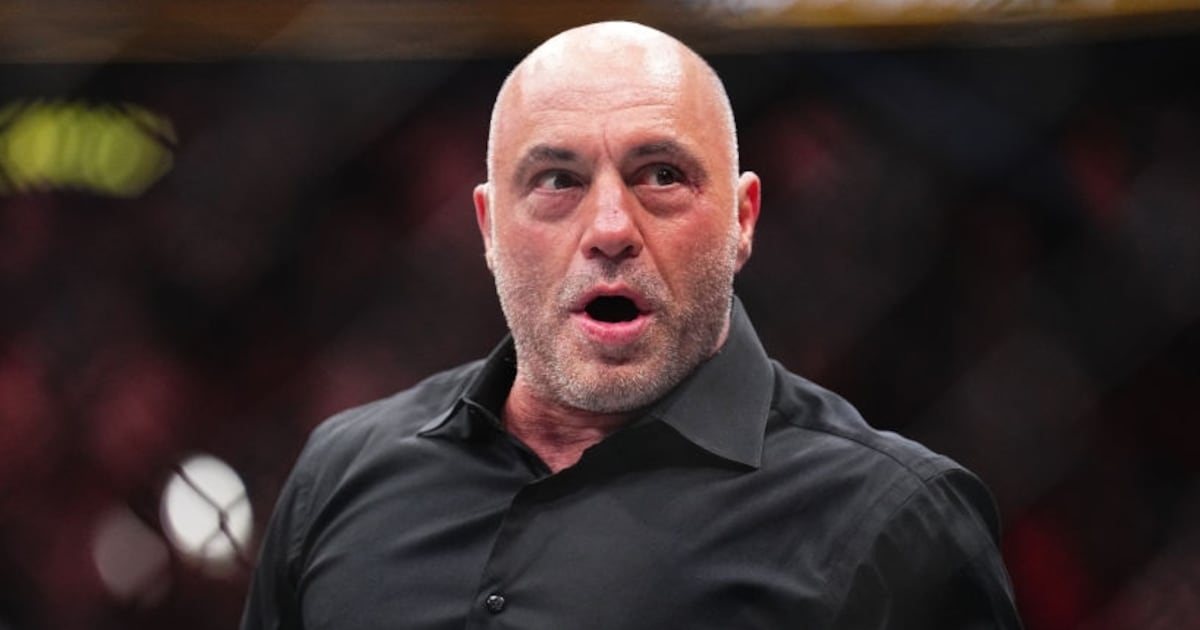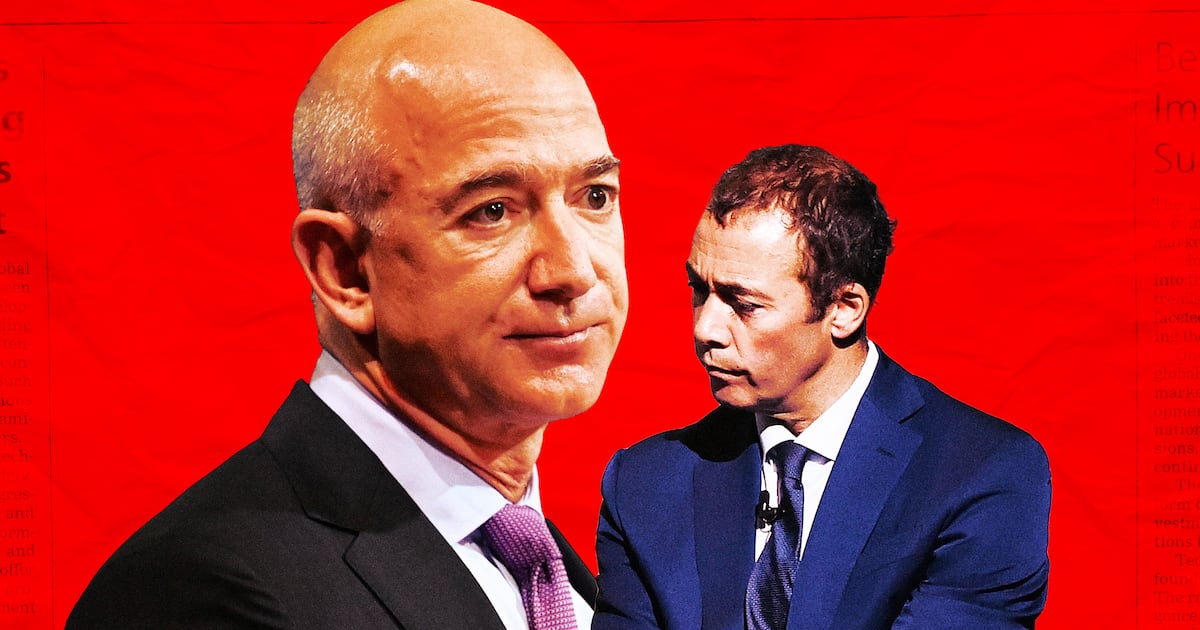Karen Handel—a former big shot at Susan G. Komen, the giant, embattled breast-cancer charity—has some unkind words for Planned Parenthood.
She calls the organization “a bunch of schoolyard thugs.” She says Planned Parenthood has become “blatantly partisan.” But perhaps her harshest criticism is reserved for the group's president, Cecile Richards, who she says launched a "vicious mugging" of the charity, ultimately hurting women.

Handel is a former vice president of public policy for Komen, the charity that caused an uproar earlier this year when it decided to stop providing an annual grant to Planned Parenthood. Now, her new book offers an insider’s account of that decision—which has upended one of the most powerful cancer-fighting organizations in the world, responsible for raising some $1.9 billion to fight the disease.
ADVERTISEMENT
In short, she tells The Daily Beast, Planned Parenthood caused a very big war over a grant that was actually "inconsequential" to the organization's $1 billion-a-year budget. She says the group "browbeat" Komen into reversing its decision, sparking a media storm that led Handel and many others to resign.
Amid an election season crackling with emotion-charged battles over abortion, Komen's decision to stop giving its annual grant to Planned Parenthood was seen by many outsiders as political: Planned Parenthood, after all, provides abortions, in addition to its preventive-health and family-planning services. However, Handel says it wasn't about politics or abortion, but money in a tough economy.
Simply put, Handel writes in her book, Komen was looking to restructure the grants it gives to outside groups in an attempt to "get the biggest bang for each dollar invested." The charity was considering phasing out "pass-through grants," in other words, grants to groups that essentially serve as middlemen. She says Planned Parenthood was like a middleman because the organization doesn't give mammograms itself, but provides referrals to women to get mammograms at other medical facilities. (She says these kinds of grants were referred to as "crappy grants" by Komen's president at the time, Liz Thompson.)
In addition to the issue of the grants, Handel says, Komen was under increasing pressure from Catholic bishops not to give money to Planned Parenthood. Bishops were in fact telling parishioners across the country not to donate to Komen due to its relationship with Planned Parenthood. The financial fallout for Komen could have been "severe," Handel says. Komen's affiliates around the country, which organize state pink-ribbon races and fundraisers, she says, were panicking.
Planned Parenthood declined to respond to specific comments from Handel, but sent a statement from Eric Ferrero, vice president of communications, saying: "We haven’t seen the book and we can’t speak to it. But it is incredible that there are people who still want to inject politics into breast-cancer detection and treatment. Last year, Planned Parenthood health centers performed nearly 750,000 [physical] breast exams. We’re proud of our work to help detect breast cancer, and our focus is always on the patients who rely on us for this lifesaving care."
Handel joined Komen in April of last year, right in the middle of the brewing storm. A former secretary of state in Georgia, she had just lost a tight race for the Republican Party nomination for governor of Georgia. She believes the loss was due in part to the fact that she not been endorsed by Georgia Right to Life. Handel is against abortion, but not in the case of rape or incest, which inflamed "all-or-nothing pro-lifers," she writes. The "bullies on the abortion issue" were "from the right" that time, she says, "not the pro-choice left."
Ironically, she tells The Daily Beast, she thought the job at Komen would be a straightforward change, devoid of politics or abortion, with a clear focus on cancer.
She was immediately tapped by chief executive Nancy Brinker, she says, to come up with a solution to the annual Planned Parenthood grant, which was around $680,000. She says that in studying Komen's grant structure, she realized Planned Parenthood in fact wasn't eligible for a Komen grant, as some of the organization's branches had been involved in "investigations," and some had been "barred from receiving state government money in several states," in violation of Komen rules. (Planned Parenthood has denied being barred from receiving government money for any wrongdoing, saying that state legislators impose eligibility rules, and that Planned Parenthood doesn't always choose to meet those rules.)
Thus began many rounds of discussions and disagreements among Komen's top brass, including vice president of communications Leslie Aun, president Liz Thompson (whom Handel describes in the book as "extremely knowledgeable about the science of breast cancer" but "a bit out of her depth" in the top job), and CEO Nancy Brinker, who had founded the powerhouse charity 30 years ago in the name of her sister, Susan G. Komen, who died of breast cancer. Handel recommended various solutions, including eliminating the middleman grants for groups like Planned Parenthood. After months of heated wrangling, she says, Brinker and Thompson decided late last year that this was the most logical decision. Handel says the group enlisted the help of Hilary Rosen, a Democratic political consultant, to navigate the situation with Planned Parenthood and the political left.
Handel says Komen had "ongoing discussions with Planned Parenthood" about the issue, even exchanging proposed public statements. She says the presidents of both Planned Parenthood and Komen made an agreement not to take the issue to the press. Cecile Richards, the Planned Parenthood president, broke the deal, she says, going to the press before Komen had made a public statement and launching "an unprecedented, premeditated assault on a women's health organization, while at the same time claiming to be a women's health organization." (Planned Parenthood has denied going to the press.)
Handel says Komen officials had focused so heavily on not making the decision political that it actually backfired. "We as a team at Komen, and for me in particular, were trying so hard to not let the overarching political issues influence anything in the decision," she tells The Daily Beast. "If anything, by being so nonpolitical, we did not appropriately assess the political aspects and political risks that were going to be inherent to it."
Handel also points to an important internal glitch at Komen after the decision was made, but before an official statement was released. She says a call came in from the Associated Press asking about the Planned Parenthood grant, as the news had apparently been leaked. Handel says Komen's head of communications didn't stick to the planned script—namely, that Komen was simply restructuring its grants. "We had no intention of ever making 'investigations' the public narrative or mentioning it with the press," Handel writes in the book. "Unfortunately, someone would eventually do so—Komen’s own communications vice president, Leslie Aun."
Handel believes that was a defining moment. "I don't know what she was thinking," she tells The Daily Beast. "It was only one of two things—it was either some sort of not handling the interview properly, or some sort of complicity ... I don't know what her motivations for that were. I just know that she did it. I know that Hilary Rosen was in the office at the very moment that it was given." A media blizzard broke loose, and Komen reversed its decision within days. Handel resigned.
Aun, who recently left the charity for another job, takes issue with Handel's recollection of events. "I am surprised that Karen would make such an assertion," she tells The Daily Beast. "When the Planned Parenthood decision was made back in early December, I was directed to develop a statement and messaging focusing on the fact that Planned Parenthood was under investigation. Every word of the messaging related to the Planned Parenthood decision was personally approved by Karen. Before speaking with the AP reporter, I made sure to check in with Karen, letting her know that I would be using the messaging that she had OK’d and then I read it nearly verbatim to the reporter. If there were alternative messages I was supposed to deliver, they were not shared with me."
Andrea Rader, a spokeswoman for Komen, declined to comment on the matter, sending a statement saying, “We are sure the book contains many of Karen’s personal opinions about the organization and its leadership; however, we won’t comment on her personal views. The record is well-known: Nancy Brinker and Susan G. Komen for the Cure have done more for women facing breast cancer than any other individual or organization. Liz Thompson is one of the most highly respected leaders in women’s health in the nation, if not the world.” Thompson recently announced she is leaving the charity. Brinker said she is stepping down as CEO but will remain in a managerial role.
Rosen, for her part, says Komen had hired her public-relations firm, SKD Knickerbocker, to do the PR for an environmental research initiative, when the Planned Parenthood issue cropped up. She says she wasn't an official consultant on Planned Parenthood, but that she tried to help smooth the process: "I helped them revise their policy and announce their decision to backtrack, and then we resigned the account. I still believe in Komen's mission and think we all need to give them a chance to move on." She adds, "Karen Handel's mission is obviously not breast health—it is a radical anti-abortion agenda. If she cared about the mission, she would let her vendetta go."
Handel says it's Planned Parenthood that hasn't let the issue go, calling the group's actions "bullying at the height of bullyism." She says the media blitz continued even after she resigned, and she blames Planned Parenthood for that. "It's outrageous and it's one of the reasons why I had to write this book. If someone doesn't stand up to them and turn around and punch them in the nose, they're gonna keep doing this over and over and over again," she tells The Daily Beast. "Bullies always have another target."
She continues, "All of this was keyed up and ready to go—it was clear from that first day that Planned Parenthood and the left was going to identify a specific individual to vilify in all of this and to make the scapegoat, to lay blame, and I was that person."
She says the media swirled with misinformation. "It was portrayed by Planned Parenthood in a very willing mainstream media that these dollars were going away—not true, absolutely not true. Komen was realigning those funds into other programs," she says, adding, "I think it's clear that Planned Parenthood has worked to mislead the public about who they are ... they do not provide mammograms. They are the middleman, or middle woman, if you will. They give referral slips. That is not the same thing. From a business perspective for Komen, or for any organization, it's common sense that if you can identify a direct service provider, you can deliver that service more effectively, more efficiently."
Handel says she believes Planned Parenthood has become overly political, campaigning for Barack Obama when the group should strive to be more balanced, since it receives federal funds from "taxpayer dollars." She says that around the time Komen made the Planned Parenthood decision, but before any statement was announced, Debbie Wasserman Schultz, the head of the Democratic National Committee, somehow caught wind of it, and called Brinker on the phone to advise her against it. (Representatives for Wasserman Schultz didn't immediately respond to a request for comment.)
"How hypocritical that my politics and even Nancy Brinker's got so much ink and so much airtime, yet Cecile Richards' politics got nothing," Handel tells The Daily Beast. "I would argue that Cecile Richards is far more political than Nancy Brinker, far more political than certainly I am. You didn't see me in the last year visiting the White House multiple times. I didn't have a seat at the table with the president ... she is a featured speaker at the DNC."
She adds: "The mainstream press actually even took Komen to task for daring to hire someone who was pro-life. Since when did a person's political views dictate what type of job they were gonna get in the nonprofit world, in the corporate world, anywhere other than if it's a raw political job, obviously? It's clear that Planned Parenthood went out of its way to paint me as some sort of a zealot—a Trojan-horse zealot who came into Komen and within 10 to 11 months had completely turned the place upside down. That's clearly not who I am and it's not what happened."
She continues, "You know, I think one of the things that was really disturbing and distressful in all of it, while Planned Parenthood was out doing its victory dance, the real losers in all of this were the women who have been affected."






